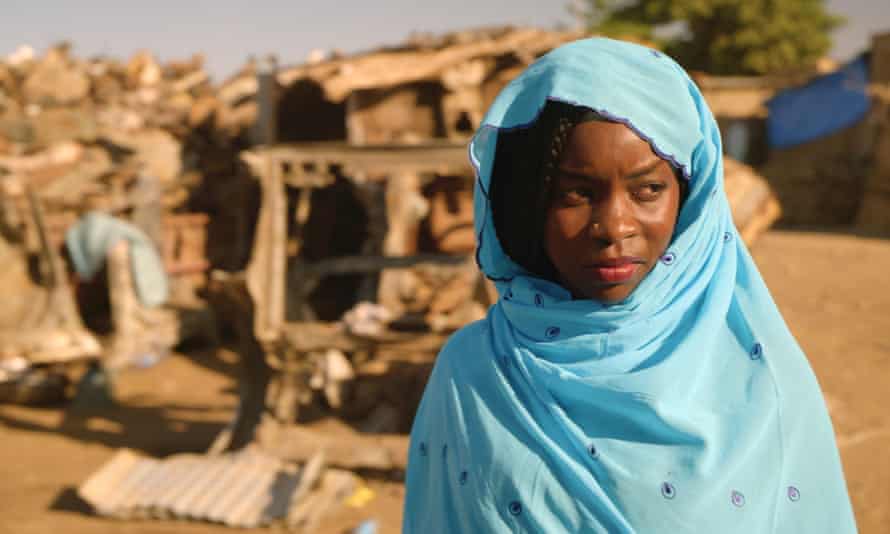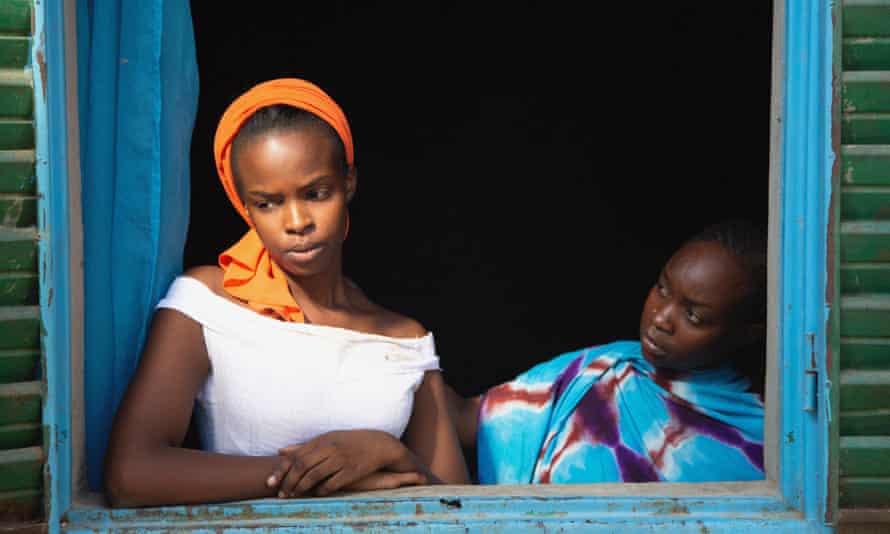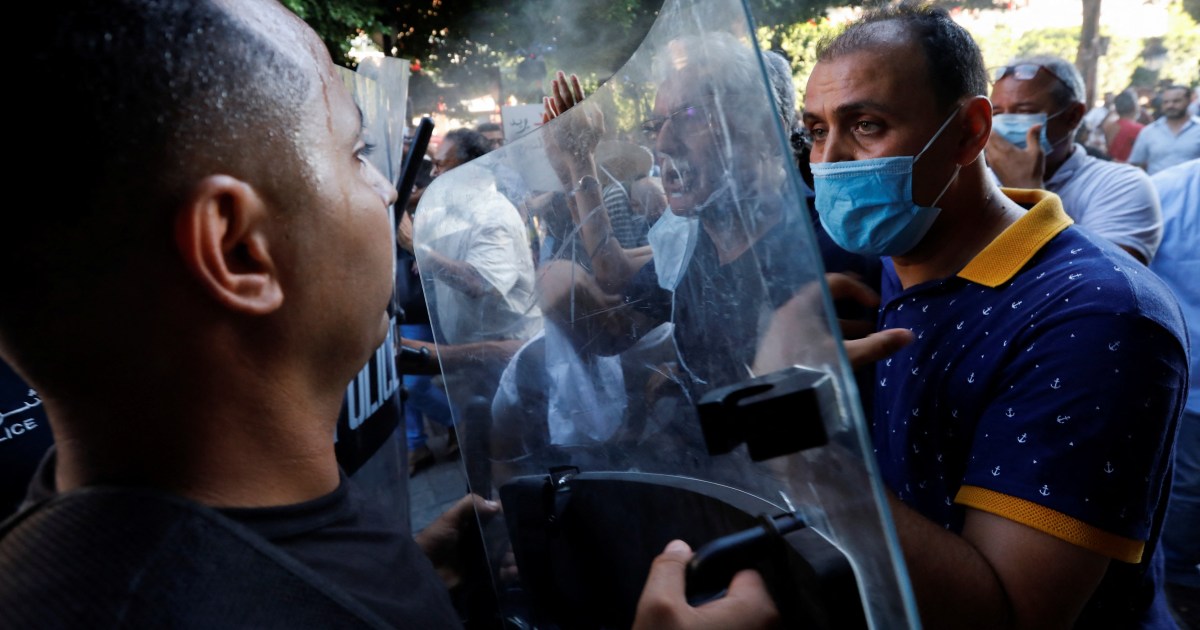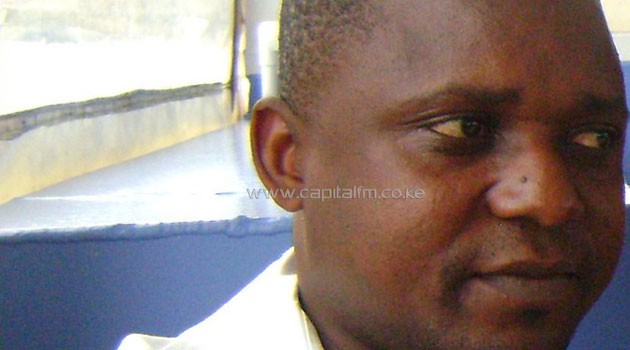‘I wanted to be on the side of women’: Mahamat-Saleh Haroun on his abortion drama set in Chad | Movies
As a young boy in Chad, Mahamat-Saleh Haroun grew up surrounded by women – mother, aunties, four sisters, one formidable grandmother. The day after he was beaten by a teacher at Koranic school, his grandmother marched up to give the man a piece of her mind: “My grandson will never come back to your school.” Haroun mimics her angry finger jabbing and smiles warmly. “She had a very strong personality. Normally, a woman would never do this. The shame!”
Haroun’s boyhood instilled in him, he says, a respect for women. But in his career as Chad’s only prominent film-maker – and one of Africa’s best known cinematic exports – he has told stories about men and boys. His gorgeous film Abouna is about two young brothers searching for their father. A Screaming Man told the tale of a hotel pool attendant who packs his son off to war; after it won the jury prize at Cannes in 2010, the government in Chad rebuilt the country’s only cinema (it has been closed since the beginning of the pandemic).
Now in his early 60s, Haroun has directed his first film with female leads. Lingui, the Sacred Bonds is the story of a single mother, Amina, who is shocked to discover her 15-year-old daughter is pregnant and wants an abortion. At first, she refuses. Abortion in Chad is illegal; they are Muslim – religion forbids it. But she comes round to the idea, and the question becomes: how to get the abortion done? It’s a film about women’s resistance and a forthright challenge to Chad’s patriarchy.
The idea for making a film about an unwanted pregnancy came to Haroun after reading a newspaper story about an abandoned newborn found dead in a pile of rubbish. Articles like this appear with grim predictability in Chad. This time something clicked. “When I read it, I said: ‘I have to do something.’ I wanted to be on the side of women, because it’s a huge problem.”

What about the men? Haroun sighs. “Men are always out of the frame. The guilty one is always the woman.” In cases where the pregnancy is a result of rape, women and girls are rarely believed. He adds: “There is the feeling that the female body belongs to men. It’s at their disposal.”
Haroun is speaking from his home in Paris; he has lived in France since the early 80s, after fleeing civil war in Chad. Like his films he is gentle, thoughtful and sincere. Dapperly dressed in a suit, very starched white shirt, beautifully knotted tie and yellow waistcoat, you could easily mistake him for a politician.
Actually, he did briefly turn his hand to politics. In 2017 he was appointed Chad’s minister of culture. “I resigned after a year,” he shrugs wearily. “I thought in a naive way I could change things. I was wrong.” One of the pieces of legislation he backed would have legalised abortion; it failed to pass through parliament.
So, back in his day job, Haroun directed Lingui. The story follows Amina on her mission. The clock is ticking. A sympathetic doctor tells Amina that he risks five years in prison if he’s caught performing an abortion; his price is impossibly high. Amina also investigates the backstreet option – unsafe abortions in Chad put the lives of women and girls at risk.
Lingui sounds like a difficult watch. But it’s not bleak in the slightest. Like all Haroun’s work this is beautifully observed and deeply humane film-making. And it is satisfyingly feminist. Amina is herself a single mother, who has raised her daughter, Maria, out of marriage. For years she has sucked up the disapproving stares of her moralising neighbours, lived with the shame. We watch as Amina takes control of life.
“Because she is marginalised she doesn’t have anything to lose,” says Haroun. “She is ready to struggle to save her daughter, and by saving her daughter she saves herself.” He peers into the screen. “Do you understand me very well?” He often does interviews with an interpreter, but today is translating from French himself.
Lingui is a film about women joining forces, linking arms; coming together to help Amina. It features a wonderful midwife, played by Hadj Fatimé Ngoua, a pharmacist in real life, who is a friend of Haroun’s. (There is no film industry in Chad, no infrastructure, and few professional actors. So, Haroun casts friends, and people he spots out and about.) We also watch Amina help her sister, whose husband is insisting their little daughter – Amina’s niece – undergo female genital mutilation. Amina knows a woman who performs fake FGMs (to hoodwink men who insist on getting their daughters cut). FGM is illegal in Chad but still widely practised.

“I grew up seeing the solidarity of women,” says Haroun. He tells me about a tradition in Chad of women forming mutual associations. Every month each member hands over money and the total is given to whichever of them is in most need: to start a business, or help make ends meet. “Because you cannot just wait for men. Women find the solution. That’s the traditional way.” He pauses, and chuckles to himself: “It’s the invention of insurance.”
This is how is feminism is done in Chad, he says, a society in which there are things you can’t discuss or negotiate. “It’s pragmatic feminism. Women don’t have the theory – they just have to find a solution. There is a problem, and you have to act, or else you disappear. That is how I think women can survive in this society in Chad.”
The title of the film, lingui, he adds, is a Chadian word that translates as “living together”. “Which means if you belong to the same community, if you live in the same space, you have to take care of each other, in a spirit of solidarity and kindness.”
I ask Haroun if there has been a backlash to the film in Chad. He shakes his head. “When we had the first official screening with the authorities, the minister of culture was so moved. She said to all the women in the cinema: ‘Each of us here knows this story. This is our reality, we have to change that.’”
A couple of days later, I speak to Achouackh Abakar Souleymane, the actor who plays Amina. Talking over Zoom from Chad, she says that, like all the women who appeared in the film, she was nervous beforehand about its topics of abortion and rape. “But at the same time, I wanted to do it because people make movies to talk about their problems. Everything is taboo in Chad. So, someone has to do it.” She’s been overwhelmed by audience responses: “People keep telling me: ‘You’re brave …’ Or they say: ‘This is our life, our story.’”
Souleymane met Haroun when she worked as a costume assistant on his 2013 film Grigris. The day he called her to meet for an audition for Lingui, she was in hospital, and had just woken up after giving birth to her son by caesarean. “I didn’t tell Haroun that because I didn’t want him to know. I was like: ‘Maybe I can meet next week,’” she tells me, laughing. She ended up shooting the film when her baby was three months old, pausing every hour or so to breastfeed. “At the beginning we had to do the makeup to give me dark circles but after a while we didn’t need it any more.”
If Haroun stopped making films, cinema would lose its only glimpse of life in Chad, and Chadians would lose a mirror to their society. That gives him a sense of purpose: he wants his films to give people a prod, to wake them up – make them look at the future of their continent. It’s about showing the world a true image of Chad, too. “The first representations of Africans were made by others. So my cinema consists of trying to break down this false image. It’s a duty and a responsibility. My films couldn’t just be entertainment.”





